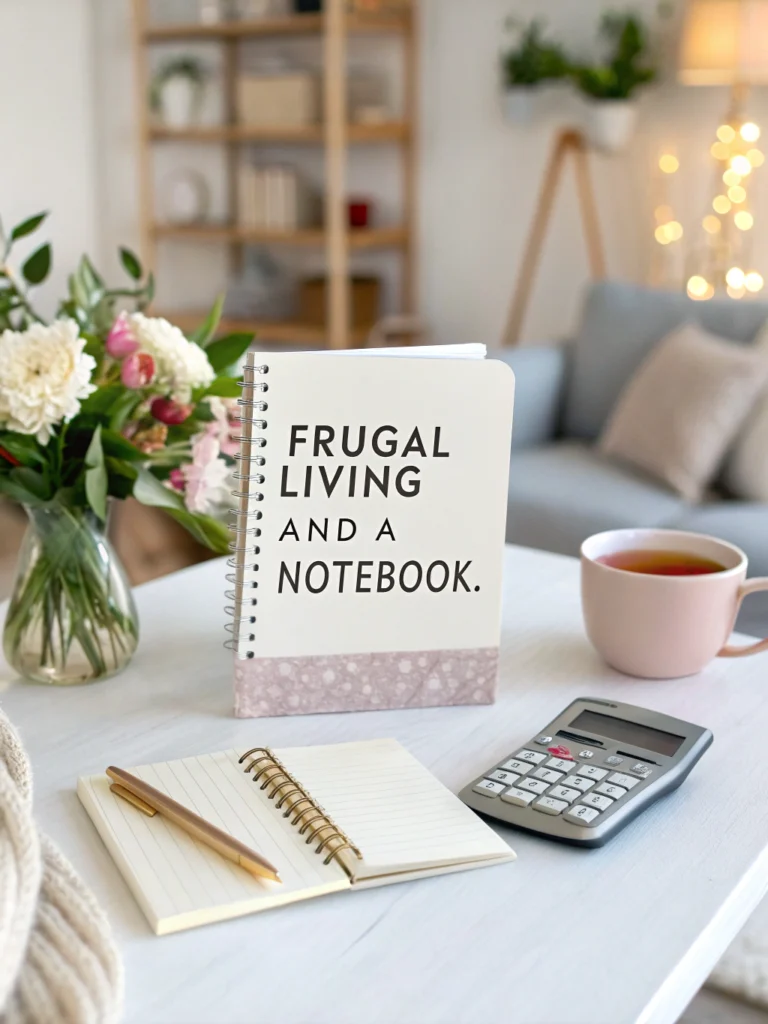Let’s be real, everything costs more these days. Your grocery bill looks like it’s preparing you for a small apocalypse, gas prices make you consider biking everywhere, and even your coffee run feels like a financial decision. If you’re wondering how to save cash when inflation keeps chipping away at your paycheck, you’re not alone. The good news? You don’t need to live on ramen or quit all your subscriptions (well, maybe just a few). This post breaks down realistic, no-BS ways to keep more money in your pocket without feeling like you’re sacrificing everything that makes life enjoyable.
No time to read the whole post?
Here’s the quick version: Inflation is rough, but you can fight back with smart budgeting, cutting unnecessary expenses, shopping strategically, embracing DIY solutions, and making your money work harder through automation and side hustles. Small changes add up to big savings, and you don’t have to live like a monk to see results.
Table of Contents
Why Saving Money Feels Impossible Right Now
Prices keep climbing, but your paycheck? Yeah, that’s pretty much playing dead. Rent, utilities, food, transportation—they’re all competing for your hard-earned cash like it’s a Black Friday sale. And just when you think you’ve got a handle on things, some random expense pops up. Car repair? Surprise medical bill? Your cat deciding she only eats the fancy wet food now?
The struggle is real, and pretending you can just “budget better” without actual strategy is like telling someone to “just relax” when they’re stressed. Not helpful. What you need are practical tactics that work in the real world, not some fantasy land where groceries cost $30 a week.
Start Tracking Every Single Dollar (Yes, Really)
I know, I know—tracking expenses sounds about as fun as watching paint dry. But here’s the thing: you can’t fix what you don’t measure. Most people have zero clue where their money actually goes until they start writing it down.
Download a budgeting app like YNAB, Mint, or even just use a simple spreadsheet. Track everything for one month. And I mean everything—that $4 energy drink, the impulse Amazon purchase, the subscription you forgot existed. Once you see the patterns, you’ll probably have a mini heart attack at how much goes to random stuff you don’t even value.
This isn’t about judging yourself. It’s about getting real data so you can make informed choices. Maybe you discover you’re spending $200 a month on takeout when you thought it was $50. That’s valuable intel.
Cut the Fat (AKA Subscriptions You Forgot About)
Speaking of subscriptions—when’s the last time you actually used that streaming service you signed up for during a free trial two years ago? Or that gym membership you got in January when you were feeling motivated?
Americans waste an average of $273 per month on unused subscriptions. That’s over $3,000 a year literally evaporating from your bank account. Time for a subscription audit:
Go through your bank statements and identify every recurring charge
Ask yourself: “Did I use this in the last month?”
If no, cancel it immediately
For things you use occasionally, consider rotating—cancel Netflix, subscribe to Hulu for a month, then switch back
You don’t need seven streaming platforms. You really don’t. Pick one or two favorites and rotate the rest when you actually want to watch something specific. Your wallet will thank you.
Master the Grocery Game
Food is expensive, and it’s not getting cheaper. But before you resign yourself to eating cardboard, let me share some tricks that actually work for learning save money at the store.
Shop with a list and stick to it. Those impulse purchases add up faster than you think. Stores literally design their layouts to make you spend more, so go in with a plan and blinders on.
Buy generic brands. I promise, the store-brand cereal tastes exactly the same as the name brand. You’re paying for packaging and marketing, not better quality. Try swapping just five items to generic next time you shop and watch your total drop.
Meal prep like your bank account depends on it (because it kinda does). Cooking at home saves massive amounts compared to eating out. Dedicate Sunday afternoon to prepping meals for the week. It’s boring, I won’t lie, but it’s also effective.
Use cashback apps like Ibotta or Fetch. You’re buying groceries anyway—might as well get a few bucks back. It’s not life-changing money, but hey, free is free.
Embrace DIY (Within Reason)
You don’t need to become a homesteading influencer who makes their own soap and raises chickens. But there are some DIY swaps that genuinely save money without requiring a PhD in crafts.
Coffee at home instead of the café. Yeah, I sound like every boomer financial advisor ever, but seriously—a $5 latte every workday is $1,300 a year. Get a decent coffee maker, learn to make your favorites at home, and save that café money for actual treats.
Basic home and car maintenance. YouTube has tutorials for everything. Changing your own air filter, unclogging drains, fixing minor stuff around the house—these are all things you can learn in 10 minutes that’ll save you service call fees.
Haircuts, cleaning products, gifts. Depending on your skill level and interest, you can DIY these too. I’m not saying give yourself a haircut the night before a wedding, but regular trims between professional cuts? Totally doable. Mix your own cleaning solutions with vinegar and baking soda. Make homemade gifts when appropriate.
The key is knowing your limits. Don’t DIY electrical work if you don’t know what you’re doing—that’s how you turn a $100 problem into a $5,000 disaster. 🙂
Automate Your Savings (Out of Sight, Out of Mind)
Here’s a sneaky psychological trick: if you never see the money, you won’t miss it. Set up automatic transfers from your checking to savings right when your paycheck hits. Even if it’s just $20 per paycheck, that’s over $500 a year you didn’t have to think about.
Pay yourself first before bills, before fun money, before anything else. Treat savings like a non-negotiable expense, like rent or your phone bill.
Most banks let you set up automatic transfers. Some employers let you split your direct deposit between accounts. Do whatever makes it easiest to save without requiring willpower every single time.
And if you get raises or bonuses? Immediately increase your automatic savings by at least half of that amount. You were living without it before, so you won’t miss what you never had in your regular spending budget.
Shop Smarter, Not Harder
Retail therapy is real, but it doesn’t have to destroy your budget. When you do need to buy something, use these strategies:
Wait 48 hours before any non-essential purchase over $50. If you still want it two days later, fine. But you’ll be amazed how often the urge passes.
Use browser extensions like Honey, Capital One Shopping, or Rakuten to automatically find coupons and cashback. It takes zero extra effort and saves real money.
Buy secondhand first. Check Facebook Marketplace, Craigslist, thrift stores, or Poshmark before buying new. People sell barely-used stuff for fractions of retail price all the time.
Take advantage of price matching. Many stores will match competitor prices if you ask. Don’t be shy about it—that’s free money you’re leaving on the table.
Shop off-season. Buy winter clothes in spring, summer stuff in fall. Holiday decorations the day after the holiday. Patience pays.
Negotiate Everything (Seriously, Try It)
Most people assume prices are fixed. They’re not. You can negotiate way more than you think, especially on services.
Call your internet provider, phone company, insurance company—tell them you’re considering switching and ask what they can do for you. Often they’ll magically find discounts or promotions to keep you as a customer. I’ve personally saved hundreds doing this, and it takes maybe 30 minutes of slightly awkward phone conversation.
Medical bills? Negotiate those too. Ask for itemized bills, question charges that seem wrong, request payment plans or discounts for paying cash upfront.
Even things like gym memberships or subscription services—just ask if they have any promotions or discounts available. Worst case, they say no and you’re exactly where you started. Best case, you save money for asking a simple question.
Find Ways to Earn Extra Cash
Saving is only half the equation. Sometimes you need to increase income too. The gig economy makes this easier than ever, even if it’s not your dream scenario.
Sell stuff you don’t use. That treadmill collecting dust? Gaming console you haven’t touched in years? Extra furniture after you moved? List it and turn clutter into cash.
Freelance your skills. Writing, graphic design, tutoring, pet sitting, lawn care—whatever you’re decent at, someone will pay for it. Sites like Fiverr, Upwork, TaskRabbit, and Rover connect you with people who need services.
Participate in the survey economy. Apps like Survey Junkie or Swagbucks won’t make you rich, but they’re easy money while you’re watching TV anyway. Same with cash-back apps for receipts.
Even an extra $200-300 a month makes a real difference when you’re trying to build savings or pay down debt. It doesn’t have to be forever—think of it as a temporary boost to get ahead.
Build an Emergency Fund (Before Everything Else)
I know this sounds boring compared to investing or paying off debt, but trust me—an emergency fund is your financial security blanket. Without it, every unexpected expense becomes a crisis that derails all your other progress.
Start with a goal of $1,000. That covers most minor emergencies—car repair, urgent vet visit, unexpected copay. Once you hit that, work toward 3-6 months of expenses. It sounds impossible, but remember: small, consistent deposits add up.
Keep this money somewhere separate from your regular checking account so you’re not tempted to spend it, but still easily accessible (high-yield savings account works great). This isn’t investment money—it’s insurance against life’s inevitable curveballs.
When (not if) something comes up, you’ll handle it without going into debt or completely destroying your budget. That peace of mind? Absolutely priceless.
Final Thoughts on How to Save Cash in 2026
Learning how to save cash in 2026 isn’t about deprivation or living in your parents’ basement forever. It’s about being intentional with your money, cutting waste, and making small changes that compound over time. Yeah, inflation sucks and makes everything harder, but you’re not powerless.
Track your spending, kill those zombie subscriptions, shop smart, automate your savings, and find ways to earn a bit extra. None of these strategies require you to give up everything you enjoy—they just require you to pay attention and make deliberate choices instead of operating on autopilot.
Start with one or two changes this week. Just one. Track your expenses for a few days. Cancel that subscription you forgot about. Make coffee at home twice instead of buying it. Small wins build momentum, and momentum builds real change.
You’ve got this. Your future self is already grateful. 😉






